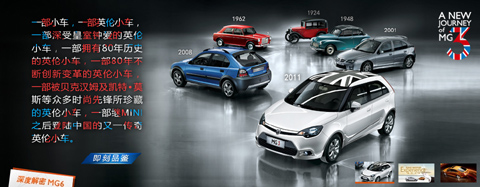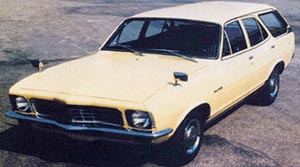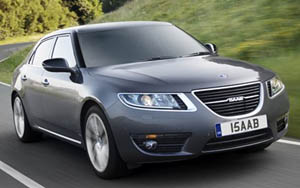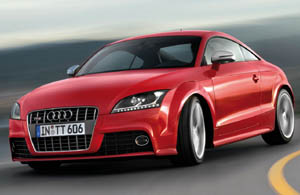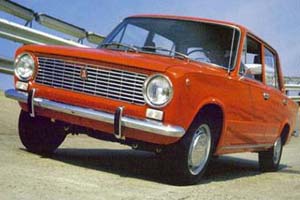As I made links for the last post, I noticed there were a lot of comments on AROnline about the replacement for the Roewe 750, the Chinese car that is based on the old Rover 75.
The replacement will be on the Opel Insignia platform, owned by GM. It’s been followed by a lot of cries that are all too familiar to me.
Most of them are saying that MG is dead, and has been for a long time, underpinned with the sentiment of ‘How dare the Chinese put this car on an American platform?’
They ignore that some of the design is still done by a British firm and while the physical British input into the next generation of Roewe and MG cars’ production is much more limited than what we see at Jaguar and Land Rover—or, for that matter, Nissan, Toyota, Honda et al—unlike the Japanese brands, the MGs will, at least, continue to bear a brand steeped in British tradition.
Many brands are not owned by a company incorporated in the country of their founders, and while I often make my choices based on the parent company, the majority of people do not care.
The comments also seem rather unfair and steeped in some cry of Yellow Peril.
I wrote on the site, in response to some of them:
Brands have, for nearly as long as the motoring industry has been around, been acquired by different groups. Are current Vauxhalls “true” British Vauxhalls, because they really haven’t been since GM bought the place in 1925? From the 1930s, Bedfords went on to Chevrolet platforms, yet history does not seem to judge them as harshly as some of us are doing above. They are not the ‘American Bedfords’ or the ‘faux Bedfords’.
As the world changes, it is only natural that some of these brands will be acquired by countries that do not share the same heritage as Great Britain. As far as I can see, Tata seems to escape the same level of hostility because India was once part of the mighty Empah. As India becomes more confident, and in, say, 2025 when all Jaguar platforms are exclusively engineered there with the help of a non-British car maker (platform-sharing is just as inevitable in the luxury sector), will they be met with the same criticism?
This is the real world: globalized, with car manufacturers turning to low-cost options where possible. We are connected with internet and intranets. And SAIC is simply leading when it comes to taking an American-owned platform engineered in Germany and putting the ‘Made in China’ stamp on it. Occidental manufacturers have been doing it for years: as Climbsyke points out, Rover did it with Honda platforms …
Yet we continue to be drawn to these models not because of their Japanese roots, but because they have some connection to the brand, which stirs our emotions. Some of them had the lion’s share of work done in Japan, not Britain, yet that, too, is conveniently overlooked. No one ever mentions the war (which I will now, and China was one of the Allies).
While some Red Chinese manufacturers are turning out junk that would not get past injunctions waged around intellectual property issues, at least SAIC has some awareness of the history of MG and is willing to acknowledge it. With Roewe, never mind the pastiche-British marketing that it indulges in for the domestic market where these cars are mainly sold; I’m confident that the Shangaiese are more savvy than many of us are giving them credit. An MG is an MG, regardless of the ethnicity of the parent, and regardless of the shouts of the Yellow Peril, as long as its brand values are somehow incorporated.
What may well happen is that SAIC, MG’s parent, will build up some cash by selling mass-market models, which are, incidentally, doing very well inside Red China.
Then as the Chinese demand for them takes off (as it is beginning to), it will release a sports car.
It should rightly concentrate on its domestic market first, and in recessionary times, working on a specialist sports car while the demand is not there just seems foolish.
When such a sports car arrives, I wonder if the same critics will be there to shout how un-British it is—even if SAIC has to stick it on a Volkswagen platform.
In my mind, these cars are no more and no less British than the Honda-based models that kept the MG and Rover brands going through the 1980s and 1990s, and it’s inevitable that more unlikely platform- and engine-sharing will happen. Now that the wave of consolidation has ended—Ford and Mazda have announced they are going their separate ways now—you may see very unlikely alliances indeed as the industry deals with supply and margin issues.
There have already been rumblings about Mercedes-Benz cooperation with Aston Martin; Volvo must look somewhere for a large-car platform if Geely wants to turn it into an even more upscale brand within China; and all sorts of rumours about the platform for the forthcoming Saab 9-2 have been bandied about.
Given Britain’s own failure in managing its car industry, cries that stick it to Johnny Foreigner have a sour grapes’ tinge to them, but, then, one sees it from the Foreign Office in fact or in fiction:
